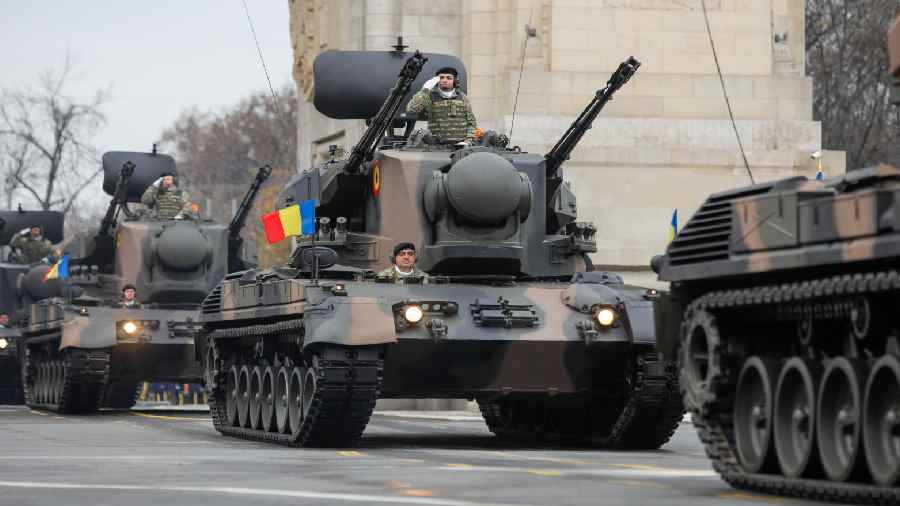The US marshalled allies on Tuesday to pledge more military support to Ukraine, accelerating the drive to deter Russia’s offensive and degrade its war machine, as Moscow accused the west of pursuing a proxy war and ignoring the “considerable” risk that it could spiral into a nuclear conflict.
President Vladimir V. Putin has himself portrayed the Ukraine war as part of a broader struggle with the west, declaring when he launched the invasion in February that his bigger target was America’s “empire of lies”.
Both Russia and western allies were raising the stakes, with Germany announcing it would send Ukraine heavy weapons for the first time, a day after the top Pentagon
official said the US objective in the war was a “weakened” Russia.
As the US gathered military leaders from 40 countries in Germany, the UN secretary general was scheduled to meet with Putin in Moscow in an effort to broker a ceasefire.
The Russian leader showed no sign of easing his assault, as missiles struck the southern port city of Zaporizhzhia on Tuesday, a day after Russian missiles hit at least five rail stations in western and central Ukraine.
Germany shift
In a notable shift, Germany, where the government had come under pressure after refusing Ukrainian pleas for heavy weapons, announced it would now send “Gepard” light tanks with anti-aircraft guns.
“The real significance of this decision lies not in the difference Gepards may make on the battlefield, but in the signal it sends,” said Marcel Dirsus, non-resident fellow at Kiel University’s Institute for Security Policy.
In a marked escalation of Russian rhetoric, foreign minister Sergei Lavrov was asked on state TV about the prospect of World War Three and whether the current situation was comparable to the 1962 Cuban missile crisis that nearly caused nuclear war.
“The danger is serious, real. And we must not underestimate it,” Lavrov said, according to the ministry’s transcript of the interview. “Nato, in essence, is engaged in a war with Russia through a proxy and is arming that proxy. War means war.”
Mark Milley, chairman of the US joint chiefs of staff, told reporters while flying to Tuesday’s meeting that the next several weeks in Ukraine would be “very, very critical”.
“They need continued support in order to be successful on the battlefield. And that’s really the purpose of this conference,” he said, describing the aim as coordinating aid that includes heavy weapons such as howitzer artillery.
New York Times News Service and Reuters











